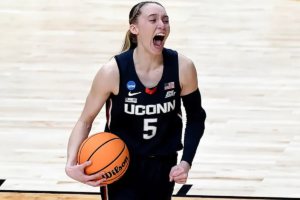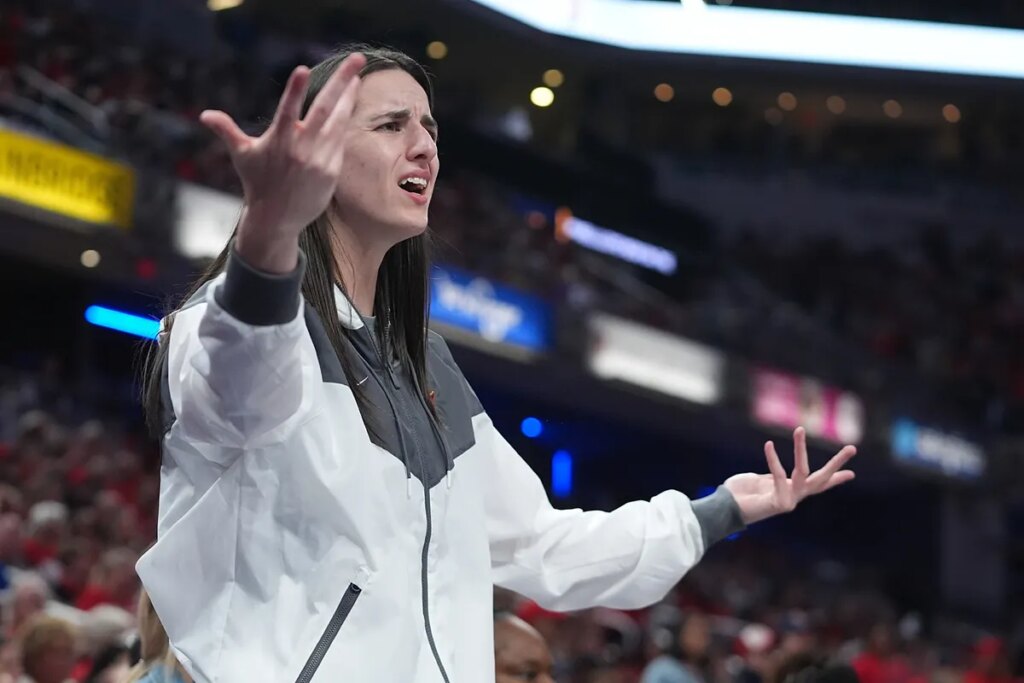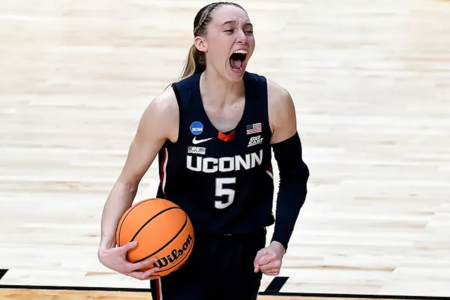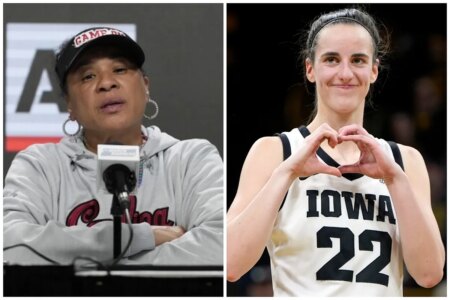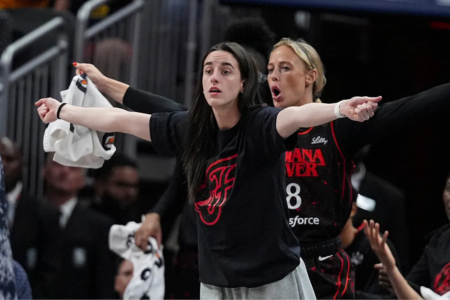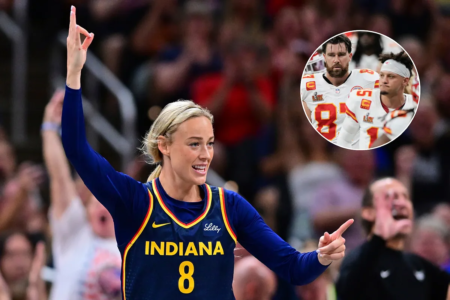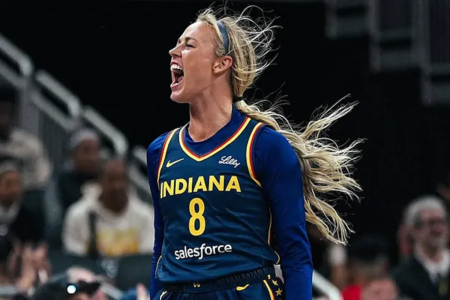The WNBA is currently navigating turbulent waters, with rising tensions between players and leadership, particularly surrounding recent controversial comments made by Minnesota Lynx star Napheesa Collier.
While several players have publicly supported Collier’s strong criticism of league management, especially WNBA Commissioner Cathy Engelbert, one notable silence has raised eyebrows: that of Indiana Fever star and Caitlin Clark’s teammate, Aliyah Boston.
Collier, who serves as the vice president of the Women’s National Basketball Players Association (WNBPA), recently unleashed a series of pointed critiques.
She accused league leadership of “poor leadership,” dismissed the idea that Clark should be “thankful,” and even cited unfair treatment of players. These remarks stirred immediate reactions throughout the league.
From seasoned veterans like Sophie Cunningham to emerging stars such as Angel Reese and Paige Bueckers, many took to social media or interviews to support Collier’s stance.
However, as the list of supporters grew, so did the curiosity around those who stayed silent.
Aliyah Boston’s silence raises eyebrows
On a recent episode of Courtside Club, hosted by Rachel A. DeMita, attention was drawn to the list of WNBPA representatives who hadn’t publicly spoken on the matter.
While players like Lexie Hull, Boston’s teammate and alternate union representative, voiced clear support for Collier, Boston herself has yet to make a statement.
“Yes, we have heard players be super vocal, but even if you look at…. okay, New York. Sabrina Ionescu is the voice for the New York team. If we look at the Indiana Fever, it’s Aliyah Boston, and then the alternate is Lexie Hull,” DeMita explained.
“Now, Lexie Hull was somebody who came out and supported Phee, and said that she made a lot of good points. Aliyah Boston was someone who kind of skirted around these questions and tried to make light of everything.”
While Boston has been active on social media, praising teammates, showing sportsmanship, and even issuing competitive warnings to rivals, her conspicuous silence on Collier’s comments hasn’t gone unnoticed.
Adding to the intrigue, Boston and Collier haven’t exactly been close. A heated on-court moment earlier this season, which saw Collier suffer an ankle injury during a play involving Boston, may still linger in the background of their relationship.
Still, Boston’s quiet stance is in stark contrast to her peers.
Sophie Cunningham said during a podcast, “The disrespect is just crazy to me,” referring to the commissioner’s perceived dismissiveness. Lexie Hull, during a pre-game interview, stated, “It’s exciting to see players speak out… I agree with everything she said.”
Even Indiana Fever head coach Stephanie White backed Collier, saying, “I’m thankful that we have strong women that are willing to say the things that matter and say the things that will move the needle for change.”
Caitlin Clark herself, who was indirectly referenced in the backlash, managed to support Collier without inflaming tensions. However, Boston, who is not only a teammate but often seen as Clark’s closest ally on the Fever, has remained publicly neutral.
Collier vs. Engelbert: A rift that won’t heal easily
Fueling this ongoing controversy is the rapidly deteriorating relationship between Napheesa Collier and WNBA Commissioner Cathy Engelbert.
According to Underdog NBA, Collier has reportedly canceled a scheduled meeting with Engelbert following the commissioner’s press conference before Game 1 of the WNBA Finals.
Engelbert defended herself by saying, “Obviously, I did not make those comments. Caitlin has been a transformational player in this league… There’s a lot of inaccuracies reported out there, and I certainly did not say that.”
The commissioner also praised the Indiana Fever and acknowledged Clark’s injury battles, but many online felt her denial came too late. One fan on X wrote, “It seems to me that Cathy Engelbert does not get it. Players no longer trust her leadership.”
Whether Boston’s silence is strategic, personal, or simply circumstantial remains to be seen. But in a moment when many of the league’s biggest names are taking a stand, her absence from the conversation is striking, especially given her role as a team leader and union representative.
As negotiations around pay equity and player treatment intensify, the expectation is that voices like Boston’s will eventually need to join the chorus.
Read the full article here

